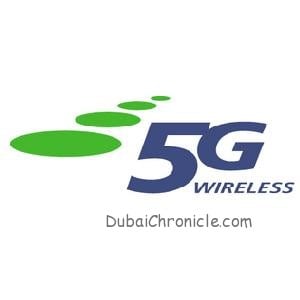
In its 5th year of releasing TMT predictions with specific relevance to the MENA region, Deloitte continues to supply industry insights based on deep analysis, built around meetings with industry experts and field executives, as well as Deloitte’s proprietary programs of research with tens of thousands of consumers worldwide.
“For the first time in our 5 years of releasing MENA specific analysis on major market developments, we are including predictions for all three sectors together, and not splitting them into different sub-industries. This, by itself, is a reflection of the exciting industry we are in. An industry that continues to blur the boundaries of innovation, and reshape how operators, media players and tech companies collaborate and interact in an increasingly integrated market place,” said Emmanuel Durou, Partner and Technology, Media & Telecommunications Leader at Deloitte Middle East.
“Across the global and regional predictions, we believe that the distinction between sectors is fast becoming obsolete. The introduction of dedicated machine learning capability to smartphones is relevant across all industry sectors, not just the technology or telecommunications verticals. The transition to 5G and resulting implications on machine to machine communication is a critical enabler to new technology adoption, starting with self-driving cars. IoT itself is the epitome of this borderless ecosystem with operators and technology companies working closely together to shape the cities and lives of tomorrow. Cybersecurity is an evergreen topic in the region rising threats to media companies and Telcos equally, and requiring cross sectorial regulations and safety measures,” he added.
2017 predictions for the Middle East include:
· 5G
Deloitte Middle East predicts that the average mobile internet speeds in some of the GCC countries will reach 30 Mb/s by year-end and around 50 Mb/s by 2018. By end of 2017, over 40 carriers regionally are likely to offer LTE-Advanced (LTE-A), and over 10 should have LTE-Advanced Pro (LTE-A Pro) networks. We expect 5G to be launched in its pre-standard form starting 2019 in specific regions within the GCC and a large-scale commercial rollout to the wider metropolitan areas by 2020. During that time, 5G speeds are likely to co-exist with multiple other generations of cellular networks working in conjunction with 3G, LTE-A and LTE-A Pro networks. Looking further ahead, by 2021 we estimate the 5G subscriber base in the GCC to reach around half a million, growing at about 34% CAGR across GCC countries until it becomes the prevalent standard by 2025.
· Self-driving and 5G
Deloitte predicts that in the next three years the GCC region will see a steady introduction of autonomous connected vehicles in controlled, public transport routes. This initial launch will include cars which are not fully driverless but connected and assisted, exchanging valuable road information within current networks. Following the 5G launch in 2021, we predict that driverless technology adoption will grow exponentially until all vehicles will be capable of driving autonomously 20 years later. 5G will enable vehicle-to-vehicle connectivity technology by lowering costs, battery consumption and latency for all machine-to-machine communication applications.
· Consumer IoT
Deloitte Middle East predicts that connected entertainment (video streaming, smart TVs and wireless speakers etc.) and connected health devices (wearables etc.), which have already reached a certain level of maturity in the GCC, will continue their upward surge by growing in revenues at an average of 10% and 20%, respectively, in the GCC in 2017, which is broadly in line with international growth rates.
There has been, so far, limited take-up of connected home appliances such as smart thermostat, lighting, and home appliances (smart oven, smart fridge, smart dishwasher etc.) in the GCC. We believe that this segment will still witness a slow increase in adoption on the back of new product launches, and the implementation of energy efficiency policies by local authorities. Similarly, we also expect connected cars to remain an emerging product this year, as the technology is still coming into place, and there are limited models with affordable price points available in the market.
· Cyber Risk
Deloitte Middle East predicts that the Middle East should be on higher alert than the rest of the world as it will see an increase in the frequency and intensity of cyber incidents across all attack vectors. Further, and with the recent emergence of ransomware and other sophisticated malware that target financial infrastructure, we predict that Middle East residences and institutions are twice as likely to encounter malware when compared to the global average. In totality, Deloitte Middle East predicts that Middle East institutions will potentially suffer an additional $130M in costs related to cyber-crime in 2017.
· Blockchain
Deloitte predicts that blockchain will find widespread use in the GCC, where it will find uptake in the public sector potentially saving $3.5 billion in leakages over the next couple of years, by using blockchain-based identity management for the disbursement of social welfare. We further expect that four out of the of six countries in the GCC will pilot some form of implementation of digital identity on blockchain at the local or national government level, and 10 million identity records will be put on blockchain over the course of the year.


































